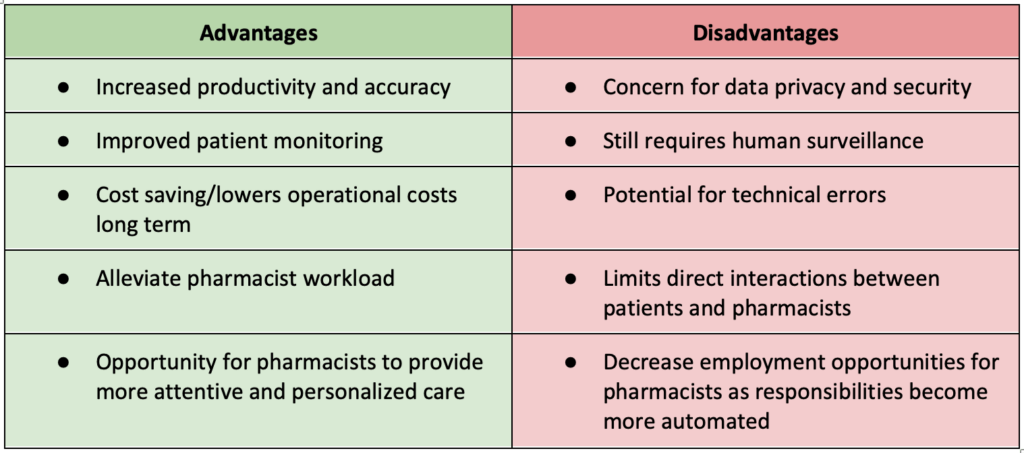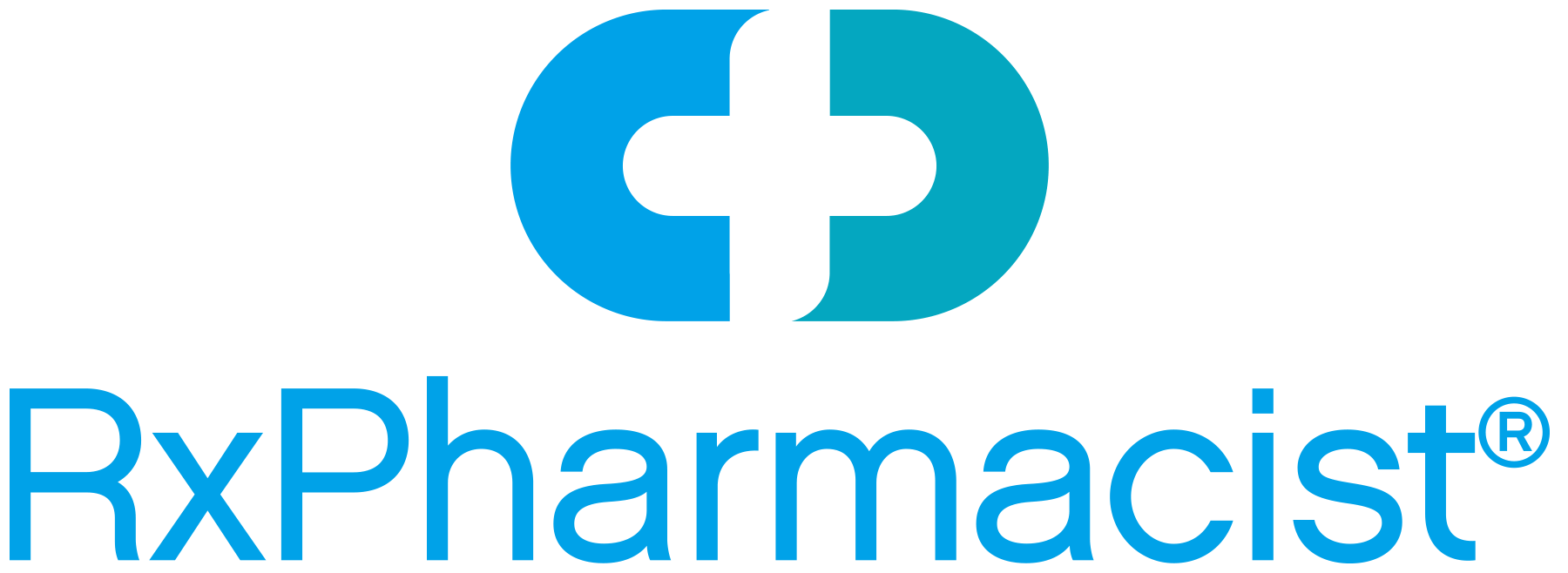
Remember when artificial intelligence (AI) felt like something from a sci-fi movie? These days, AI exists in many parts of our lives – from virtual assistants like Siri to self-driving cars. Even tools like ChatGPT are now helping with everyday tasks like drafting emails and answering questions. As AI continues to evolve and make its way into different work sectors, what does this mean for the future of the pharmacy profession as a whole?
Believe it or not, AI’s presence in healthcare is growing rapidly, offering new opportunities to enhance medication management, patient care, and pharmacy operations. Here’s how AI is currently making a difference in the pharmacy field:
Medication Management
Machine learning is being used to analyze patient information, including medical records, laboratory results, and medication lists. This can help assess the safety and efficacy of drugs, discover possible possible drug-drug interactions, and provide recommendations best suited for unique patient needs. AI models can even predict drug levels within the body and help optimize improve medication dosages. This is especially true for medications that need frequent close monitoring, like vancomycin.
Automating Pharmacy Operations
In community chain pharmacies, robotic dispensing systems exist to help fill prescribed medicines. This reduces error and improves efficiency by allowing staff and pharmacists to focus on personalized patient interactions. There are also chatbots or automated voicemails that help assist patients by resolving common, simple customer queries or rerouting complex questions to human staff. AI also helps with inventory management, predicting future patient needs, optimizing stock levels, and using software to send reminders to patients about their medication requirements. Additionally, AI monitors patient medication adherence by analyzing usage and refill history, allowing early identification of nonadherence risks and enabling timely interventions. One example is AiCure, a mobile app designed to ensure patients adhere to their medication regimen during clinical trials. AiCure tracks when patients miss doses and alerts clinical teams to response promptly.

Benefits and Challenges
AI has come a long way in helping pharmacists with many tasks, but there’s growing concern about whether it might replace human pharmacists entirely someday. After all, it seems like it can complete human tasks more accurately and at a faster pace. Let’s weigh the advantages and disadvantages of AI.

Despite the impressive capabilities and cost-saving benefits AI seems to offer, it still requires human oversight to ensure accuracy and provide the personal interaction that patients value. As a result, while AI can automate many tasks and improve operational efficiency, it is unlikely to replace human pharmacists entirely.
Future Outlook
AI is expected to be increasingly integrated with electronic health records and clinical decision support systems, providing personalized treatment plans and improving patient outcomes. Major pharmaceutical companies such as Pfizer and Johnson & Johnson, have already collaborated with or acquired AI technologies. In fact, Pfizer took advantage of AI models to research and accelerate the development Paxlovid® for COVID-19 treatment. According to the McKinsey Global Institute, AI and machine learning in the pharmaceutical industry can generate nearly $110 billion annually across the US healthcare system. As this estimate suggests, AI holds a strong potential to transform the pharmacy and healthcare field in the upcoming years and enhance both efficiency and patient outcomes. The Food and Drug Administration (FDA) also recognizes the impact AI holds for the future and has established support in ensuring AI medical products are safe and effective. As of March 2024, the FDA is building on Good Machine Learning Practice principles to refine guidelines and promote a quality assurance framework for future AI medical products that will enter the market.
Overall, while AI can assist with managing data and streamlining processes, the human connection provided by pharmacists remains invaluable. It cannot replace the clinical judgment, expertise, and patient counseling that pharmacists provide. As a result, AI will most likely be utilized as a tool to complement the work of pharmacists in the future, allowing them to better personalize medication management and improve patient care.
Winnie Chu
RxPharmacist Team
Resources
- Artificial intelligence in the field of pharmacy practice: A literature review. Available at: https://www.ncbi.nlm.nih.gov/pmc/articles/PMC10598710/. Accessed August 1, 2024.
- Artificial Intelligence (AI) in Pharmacy: An Overview of Innovations. Available at: https://www.ncbi.nlm.nih.gov/pmc/articles/PMC9836757/. Accessed August 1, 2024.
- Generative AI in the pharmaceutical industry: moving from hype to reality. McKinsey & Company. Available at: https://www.mckinsey.com/industries/life-sciences/our-insights/generative-ai-in-the-pharmaceutical-industry-moving-from-hype-to-reality. Accessed August 1, 2024.
- AI in healthcare: uses, examples and benefits. Available at: https://builtin.com/artificial-intelligence/artificial-intelligence-healthcare. Accessed August 7, 2024.
- Pfizer is using AI to discover breakthrough medicines. Available at: https://insights.pfizer.com/pfizer-is-using-ai-to-discover-breakthrough-medicines/. Accessed August 7, 2024.
- Artificial intelligence and medical products: how CBER, CDER, CDRH, and OCP are working together. Available at: https://www.fda.gov/media/177030/download?attachment. Accessed August 7, 2024.
